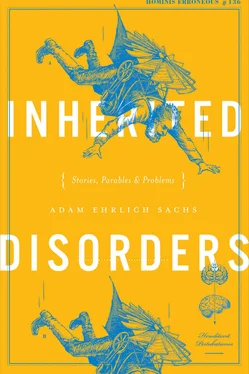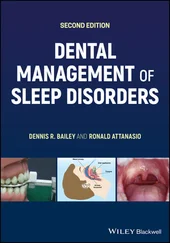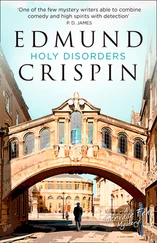He now lives at home with his parents in Demarest, New Jersey, a suburb and state of his own creation. His mother, a museum docent, acknowledges that she may well be a figment of his imagination. His father, a rather obstinate real estate attorney, maintains his metaphysical independence.
58: THE CONSTITUTIONAL LAW SCHOLAR’S TRAITS
…………………….
A renowned constitutional law scholar combined in one person intellectual verve, ethical decency, and physical elegance, but his three sons, to whom he’d hoped to pass on these three admirable traits, each inherited only one of them: the oldest son inherited the verve, the second son the decency, and the third the elegance.
In time, these traits, so valuable in combination, destroyed their lives.
Everyone who recognized the father’s familiar intellectual verve in the oldest son also expected, naturally, the concomitant decency and elegance. When it became evident that these traits were absent, his verve became a sign of what he lacked, and although the son was not especially immoral or inelegant in absolute terms, he nevertheless developed a reputation as a grotesque reprobate. Similarly, the second son’s ethical decency wasn’t admired on its own terms, so to speak: it merely marked the absence of his father’s verve and elegance, and though the son was not especially intellectually lethargic or physically inelegant compared to the population at large, he nevertheless became known as a mentally disabled monster . The third son, who had his father’s elegance but no particular verve or exceptional decency, was called a handsome depraved moron. These reputations followed them, needless to say, through their lives and to their graves.
An interesting coda. Each of the three sons had a son of his own, identical to him in every respect. The first son’s son inherited the verve, the second son’s son the decency, the third son’s son the elegance. By this time, though, the constitutional law scholar had faded into obscurity, so the presence of each trait no longer signified the absence of any others. Thus the grotesque reprobate’s son was simply considered brilliant , the mentally disabled monster’s son righteous , and the handsome depraved moron’s son suave .
…………………….
From his father he had inherited a heart with an arrhythmia condition, a mind with a melancholy disposition, a house with an insulation problem, and a tree with a fungal infection.
His cardiologist friends assured him, however, that his arrhythmia was treatable, his yogic buddies maintained that his melancholy was ameliorable, his contractor pals claimed that his home was weatherizable, and his arborist chums swore that his tree was salvageable.
Everything can be fixed, they insisted. Everything can be made like new!
But very politely he has declined all their help. No thank you to the cardiologists, no thank you to the yogis, no thank you to the contractors, and no thank you to the arborists (one of whom even specializes specifically in decay-causing fungi). What point, they wonder, is he trying to make, exactly, by sitting in that cold house with that irregular heartbeat and that sad head, beside the diseased tree?
…………………….
A son who rebelled against his father, repudiated his father’s belief system, left his father’s home, and became after some time the disciple of another master, was distressed to discover that his father and his master had met each other, liked each other, got coffee together now at least once a week, and often went on little weekend outings around New England together.
He felt betrayed, of course, but also perplexed. He had selected this master precisely for the ways in which he was different from his father, almost his opposite. If they ever met, he’d once thought, they wouldn’t understand each other at all. The same words would mean something radically different to each of them. So how to explain all these classic New England outings? Three weekends ago: Newport, Rhode Island. This past weekend: the Berkshires. Clearly, they were able to communicate. Either his father and his master were not as different as he’d thought, or they’d forged a simple common language, a sort of pidgin tongue, that made these classic outings not only possible but actually pleasant, even delightful.
The moment he discovered his father’s Tanglewood ticket stub in his master’s recycling bin, the son knew the apprenticeship was finished. He renounced his master, repudiated his master’s belief system, and left his master’s home. At length he found a third master, one diametrically opposed to the other two. His philosophy was different, his concepts were different, his very vocabulary was different! There was, it seemed to the son, no common ground between them. Yet no sooner had he entered this master’s tutelage than the master met and hit it off with his father and his second master and all three went on a classic New England getaway, to tour the covered bridges of Vermont. The following weekend, they drove to the peak of Mt. Washington. The weekend after that, a quintessential New England outing to Martha’s Vineyard.
The son repudiated the third master and entered the tutelage of a fourth master, who only days later was enjoying lobster rolls with the other three in Portsmouth, New Hampshire.
The son repudiated the fourth master and entered a period of self-reflection. He had sought a master nothing like his father, to furnish him with a philosophy unlike his father’s. Yet each successive master must actually have been very much like his father, and very much like the others, for how else to account for the fervor with which they explored New England together? Men with incommensurable and irreconcilable worldviews do not pile into a car together every weekend, or every other weekend, and drive for up to four or five hours to see the best of what New England has to offer, now lighthouses along the coast of Maine, now foliage in the Connecticut River Valley. Either, the son reflected, all masters were, by nature, men like his father, with the same values and the same pedagogies and the same notion of what a perfect New England weekend looks like — or else the only men who appeared to him to be masters were men like his father. In other words, maybe he was seeking out, without even realizing it, men of his father’s temperament, with his father’s philosophy, and his father’s eagerness to really get to know his pretty little corner of the country, with its interesting colonial heritage, and calling them “master.” Maybe that, to him, was just what a “master” was.
Either way, the son realized, he was on his own from now on. There was no point in becoming the disciple of another man who would only end up as another buccaneer of this little New England sightseeing brigade, which that very weekend was off picking its own pumpkins and gourds from a supposedly glorious pumpkin patch near Brattleboro, Vermont.
TO GENETICS
…………………….
The son of the infamous Chessboard Killer, who killed his victims by pushing them into open manholes and tallied them by placing one pebble per victim on a chessboard in his apartment, vowed to save lives rather than take them. For this reason he became a nurse, the very converse of his father. However, as one pundit put it, “there must be something to genetics,” because at some point last year the son started murdering huge numbers of people himself, also by pushing them into open manholes. Just like his father, he kept a tally of his victims by placing individual pebbles on the squares of a chessboard.
Читать дальше












